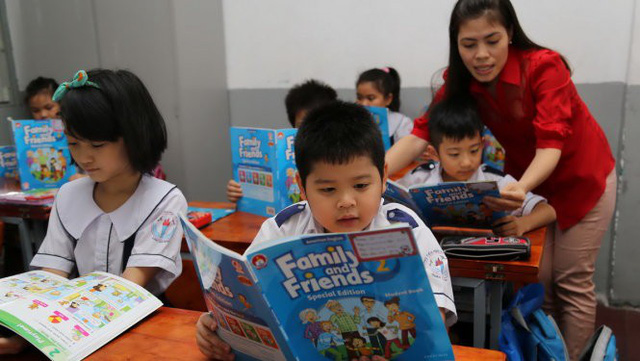What do you do about weird foreigner teachers in Vietnam?
It’s a darker topic than most people realize…
I’m not writing this to attack all native English-speaking teachers but to focus some attention on the bad apples within the system. Long-term career teachers will know instantly what I’m talking. The topic comes all too frequently in online discussions and from incidents reported in the media.
A large enough number of English native speakers (ENS) working in the Vietnamese educational landscape are just not competent enough, have personal issues that can impact their teaching or are hidden sexual predators taking advantage of the frequent contact with young, immature students. The majority of these teachers are male.
In the schools that offer genuine international education and screen their potential new hires, these problems are rare as teachers are monitored and supervised carefully. So the real issue begins with the English centers that operate as businesses, mostly free from Ministry of Education and Training scrutiny, and employ any white face with a TEFL/CLETA qualification and in many cases less than that.
Hidden problems with drug, emotional and mental issues also appear often enough to cast doubt on their fitness to teach in any educational environment.
I know of a teacher with a massive online ego who has worked in Ho Chi Minh City and pranced around District 1 striking up relationships with street kids and junior students hanging out in the city’s parks. Another teacher currently operates an English club in Da Nang and advertises himself as an English professor and IELTS teacher while he is not qualified as either. This same teacher massively promotes himself online, frequently posing with young female students in a hug – not the sort of thing you expect of sensible, normal teachers, is it?
Culture shock, emotional outbursts, constant fatigue and relationships with younger students outside the school environment can be part of the warning signs. A few more examples: shouting at students and teachers, petting and touching students in unsupervised environments, re-occurring poor teaching practice and an unwillingness to develop more professional skills, inviting students on unchaperoned outings, and an unjustifiable, inflated opinion of their teaching skills.
So, how do we (the teaching community) and the Vietnamese authorities prevent or protect students from ‘bad teachers’?
I believe the first step should be legally requiring all businesses (English clubs and ‘centers’) offering any form of English teaching, regardless of whether they employ foreigners, to register and apply for a license with the Ministry of Education and Training and have an official business registration. Similarly, teachers’ work permits can be revoked.
In similar practice to South Korea and Japan, all businesses must have copies of their foreign employees’ work permits available for inspection by the Ministry of Education and Training, immigration officials and the police.
Next, recruiters, owners and managers are held liable for failing to adequately check their new hires. This should include penalties for staff who fail to report teachers for serious breaches of trust and legal obligations. One issue here is the provision of more training in interview skills and screening for those staff members, most of whom have no idea how to really evaluate new teachers. An official handbook of guidelines and advice available online might help management as well.
A faster way to obtain work permits would also go part of the way of solving the problem of the ‘traveling teachers’ – people who use short-term English teaching as a source of income and stay for less than three months. Consistency in education is important and replacing the teacher is disconcerting for students, which also creates problems in reliably teaching the entire curriculum over a period of time.
Finally it’s up to the educational authorities to get immigration officials and the police to take a greater interest in cracking down on the weirdos that pop up with the system. If education only becomes an excuse to make money, then the adults have failed to protect their students and Vietnamese society pays the cost for the damage to the mental and emotional needs of children and young adults.
It’s time to make a start!




















































